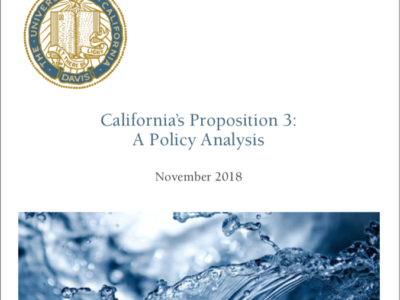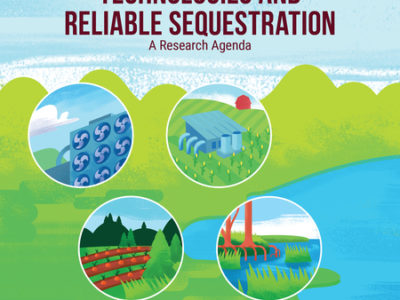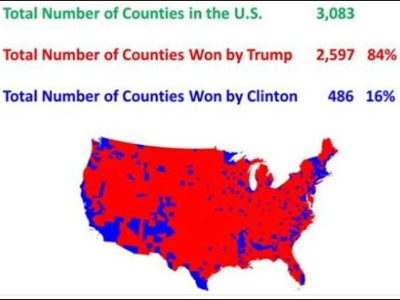The Affordable Clean Energy Rule Would Be Neither Affordable Nor Clean
Today marks the end of the public comment period on the proposed Affordable Clean Energy (“ACE”) rule, the EPA's proposed replacement of the Clean Power Plan (“CPP”). The CPP is the Obama-era effort to limit emissions of greenhouse gases from fossil-fuel-fired power plants. For reasons laid out previously on this blog (see here and here, for example) and in our new comment letter, the EPA should not promulgate the ACE rule. Four UCLA Law faculty, including Cara...
CONTINUE READINGU.C. Davis Law’s Environmental Law Center Releases Proposition 3 White Paper
Report Analyzes California's Newest, Multi-Billion Dollar Water Bond Initiative
The U.C. Davis School of Law's California Environmental Law & Policy Center has published a detailed analysis of one of the most controversial initiative measures facing California voters on the November 6, 2018 general election ballot: Proposition 3. California's Proposition 3: A Policy Analysis provides a detailed summary and analysis of the proposed "Water Supply and Water Quality Act of 2018." If enacted, Proposition 3 would authoriz...
CONTINUE READINGObama-Era Vehicle GHG Emission Standards Critical for Californians and Consumers
Berkeley Environmental Law Clinic’s Comments on the SAFE Vehicles Rule
On Friday, the comment period closed on EPA’s proposed “Safer Affordable Fuel-Efficient Vehicles (SAFE) Rule.” The rule would roll back Obama-era vehicle GHG emissions standards and rescind California’s preemption waiver, which allows the state to maintain its own standards. 83 Fed. Reg. 42986 (Aug. 24, 2018). The UC Berkeley Environmental Law Clinic (ELC) submitted two comments on this proposal. Although the rule is rife with the logical inconsistencies, sla...
CONTINUE READINGNegative Greenhouse Gas Emissions, the National Academies, and the Law
What does the scaling-up of negative emissions technologies for environmental law?
In my previous posts , I described how most emissions scenarios that are expected to keep warming within 2 or 1.5°C rely on negative emissions technologies (NETs) at large scales and how the new report from the Intergovernmental Panel on Climate Change addresses NETs (as well as how solar geoengineering could offer an additional means to reduce climate change). Since then, the US National Academies of Science, Engineering, and Medicine released a major report on...
CONTINUE READINGVocê Fala Português?
Brazil's New Environmental Crisis Raises Crucial Constitutional and Advocacy Issues
As Dan noted last week, and as E & E News reports today, Brazil's President-Elect, Jair Bolsonaro, is not only an authoritarian quasi-fascist (no exaggeration in those terms), but is also horrific for the environment. And that, in turn, is not simply bad for Brazil and South America, but for everyone on the planet. In recent years, Brazil has made some headway against illegal logging and destruction of the Amazon rainforest, but Bolsonaro is against s...
CONTINUE READINGA Global Standard for a Global Problem
Emmett Institute Submits Comment in Support of CARB’s Proposed Tropical Forest Standard
The Emmett Institute submitted a comment to the California Air Resources Board (CARB) yesterday in support of its proposed Tropical Forest Standard (“Standard”). If approved, this Standard would provide CARB a set of criteria to follow when determining whether to trade tropical forest offsets between California’s Cap and Trade Program and a foreign emissions trading system (ETS). Given the critical role that tropical forests play in cooling the atmosphere and s...
CONTINUE READINGPolitics, the Environment, and the Rural/Urban Divide
Rural areas have been home to regulatory skeptics. But there may be ways of changing that.
Is there an urban/rural split in America? Definitely so, in politics, demography, and economics -- and on the environment. Consider this, from Dan Balz at the Washington Post: “in the 2,332 counties that make up small-town and rural America, [Trump] swamped his Democratic rival, winning 60 percent of the vote to Clinton’s 34 percent.” But Balz reports that Trump’s vote percentage in urban areas was 30% worse, flipping the margin. And it’s not just Trump...
CONTINUE READINGVMT Mitigation Webinar – Tuesday October 30, 10-11am
Berkeley Law's free event will feature the Governor's Office of Planning and Research
Under Senate Bill 743 (Steinberg, 2013), California law now requires developers of new projects, like apartment buildings, offices, and roads, to analyze and mitigate the amount of additional driving miles the projects generate. To facilitate compliance with SB 743, some local and regional leaders are considering creating "banks" or "exchanges" to allow developers to fund off-site projects that reduce vehicle miles traveled (VMT), such as new bike lanes, transit, and bus...
CONTINUE READINGNot “SAFE” For California
Emmett Institute Submits Comments on Trump Administration’s Proposed Rollback of California Motor Vehicle Emission Standards Waiver
Today, the Emmett Institute submitted comment letters to EPA and NHTSA urging the withdrawal of the Trump Administration’s so-called “Safer Affordable Fuel-Efficient” Vehicles Rule for Model Years 2021-2026 Passenger Cars and Light Trucks. The proposed rule would freeze federal fuel economy standards for MY 2021-2026 vehicles at 2020 levels, and revoke California’s waiver, granted five years ago, to adopt its own motor vehicle emission standards through the Ad...
CONTINUE READINGStates Rally Around Renewables
States have ignored Trump to promote clean energy within their borders.
CLEE published a survey of state energy policies through 2017. The trend toward renewables has continued in 2018. Even after nearly two years of the Trump Presidency, states haven't given up. Instead, they're moving forward aggressively. If anything, Trump seems to have stimulated these states to try even harder. Here’s a quick rundown of what’s happened so far in 2018: California mandated that all new homes have solar energy and adopted bold new goals i...
CONTINUE READING










